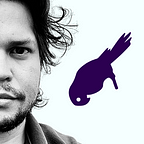Palabrita#001: re-si-lien-cia.
re-sil-i-ence / ré-si-lien-ce: the ability of people or things to recover quickly after something unpleasant, such as shock, injury, etc.
Be careful:
In Spanish, we tend to miss the second I. Therefore, it is customary in a familiar context to hear or read “Resilencia” rather than “Resiliencia”.
In the second half of the 20th century, the term resilience began to be used in the context of ecological science to refer to “the tendency of an ecosystem to recovery after being disrupted by changes in environmental variables, whether natural (floods, hurricanes, droughts, sudden insect invasions, etc.) or anthropogenic (introduction of species, such as (floods, hurricanes, droughts, flash insect invasions, etc.) or of man-made origin (introduction of alien species, fire, pollution, deforestation)”.
While ecological resilience naturally has its limits, if, for instance, deforestation occurs for example, if man-made deforestation occurs for urban, industrial or grazing developments, recovery may no longer be feasible.
The term was introduced in 1973 by the American-Canadian forest ecologist and entomologist Crawford Stanley Holling (1930-) in an article he titled Resilience and Stability of Ecological Systems.
Related words according to the Diccionario de la Real Academia Española (Dictionary of the Royal Spanish Academy)
Formations with RESILIENCE
- Resiliente: 1. adj. Que tiene resiliencia
(Resilient: 1. adj. Having resilience).
#soyresiliencia
(of resilience as a competence).
We name the adversity, the pain and the struggle we face in difficult times. Through our resilience, our species has still managed to create cultural realms. May nothing destroy you, but for the better. #soyresiliencia
